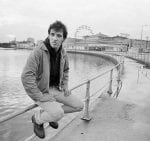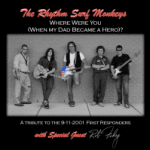Bruce Springsteen, Kathleen Edwards & the Importance of the End of an Album
Remember when musicians really made albums? Not in a merely literal sense, but brilliantly choreographed 12-song journeys, during which any given song suffers greatly for not being surrounded by the others? This still happens on occasion, but it’s rare enough nowadays that we’re often left to reminisce about great albums which threaded their narrative needles through entire balls of yarn. And two of the greatest, in that respect, are Kathleen Edwards’ Back to Me and Bruce Springsteen’s Tunnel of Love.
A great “album album” shouldn’t be judged by its first few tracks, but rather its final three, where even the greatest of artists often bury borderline compositions. Both Back to Me and Tunnel of Love open strong, to be sure, but their homestretches are ultimately most memorable, following the typical narrative arc of a film instead of a collection of songs. They’ve been tediously and lovingly organized; their presence at the tail end of proceedings has purpose.
Tunnel of Love is so cohesive from start to finish that it could credibly be called a concept album, dedicated to monogamy gone wrong. In my years at Seattle Weekly, I constantly championed it as a criminally underappreciated diamond. More recently, Grantland chimed in along these lines, calling it “his most underrated record” and adding, “Lyrically, this is his best album, even better than Nebraska. You really shouldn’t be allowed to hear this record until you’ve been married for a few years, though at that point it might strike a little too close to home. If Ingmar Bergman had been born in Freehold and cut his artistic teeth at the Stone Pony, he would’ve made this record in place of Scenes From a Marriage.”
And yet, without its final three songs, it would have been merely passable. As I wrote in 2008, “‘Two Faces’ and ‘Brilliant Disguise’ [are]…a great pair of songs, but they pale in comparison to the album’s heart-wrenching, snail-paced final quarter, which sees Springsteen throwing in the towel on his marriage. ‘One Step Up,’ ‘When You’re Alone’ and ‘Valentine’s Day’ are haunting, gorgeous ballads that are apt to drive a broken man to tears, as personal and vulnerable a trio of tracks as the Boss has ever recorded.”
Edwards’ Back to Me is actually a stronger album than Tunnel of Love, whose midsection strikes a minor chord amidst an otherwise major success. If Back to Me has a track that doesn’t stand up to the rest, it’s the spare “Away.” Yet it ultimately serves as a necessary palate cleanser, setting up the album’s final three tracks, which underscore Edwards’ love-hate relationship with where she’s from (Canada).
In “Somewhere Else,” Edwards sings, “Bit by bit I swear I think I’m losing all this city’s confidence,” while in “Copied Keys”–the best song on the album–she concedes, “This is your life, I get copied keys…This is not my town and it will never be.” Finally, in the dreamy closer “Good Things,” she comes to terms with her geographic quandary. “Good things come when you stop waiting around,” she assures the listener. “Good things come when you stop looking.” Elsewhere, she sings, “There are some things that I believe, like if you’ve got nothing you’ve still got your family. And when you are no one you’re still the king.”
Herein, John Cougar Mellencamp has nothing on Edwards’ depiction of the small-town malcontent’s psyche. Growing up far from the city lights can seem mundane at times, but it’s not without its virtues. Yet it’s okay to break free at some point, provided you don’t obsess yourself into the ground over it. Conversely, Edwards has clearly obsessed over the structure of Back to Me, to incredibly enriching ends. If only more artists would follow her lead. And if not, then they could at least listen to their Boss.




